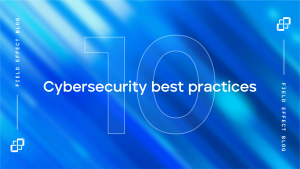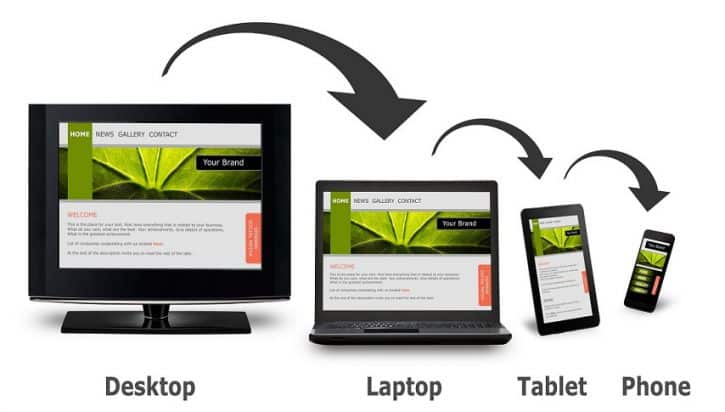The Importance of Website Security in 2024
In this day and age, when having a digital presence is essential for both individuals and businesses alike, the importance of website security has increased to an unprecedented degree. The constant evolution of cyber dangers makes it absolutely necessary to ensure that your website is secure in order to safeguard sensitive data, preserve the trust of users, and fulfill the requirements of regulatory agencies. By the year 2024, it will be absolutely necessary to put into practice the most effective methods for website security in order to protect oneself from the ever-increasing difficulty of cyberattacks. Best Practices for Website Security in 2024

Understanding Common Threats
It is essential to have a solid understanding of the typical dangers that could befall your website in order to adequately secure it. In the year 2024, the following
Phishing Attacks
Phishing attacks are carried out by cybercriminals who pose as reputable organizations in order to deceive consumers into divulging sensitive information, such as login credentials. Attacks of this nature typically take place via email, but they can also take place through websites that are made to look like authentic ones.
Malware
Malware, which includes viruses, worms, and ransomware, has the potential to undermine your website by stealing data, disrupting services, or keeping your website captive until a ransom is paid. Maintaining the functioning and integrity of your website requires that you take precautions to eliminate any malware that may be there.
SQL Injection
SQL injection attacks are situations in which cybercriminals take advantage of weaknesses in the database of a website by introducing malicious SQL code inside the database. Unauthorized access to sensitive data, alteration of data, or even the loss of essential information are all potential outcomes of this situation. https://diversewebsitedesign.com.au/insurance-agency-website-design/
Cross-Site Scripting (XSS)
Attacks that use cross-site scripting entail inserting harmful scripts into websites that consumers are viewing. These scripts have the capability to steal cookies, session tokens, and other sensitive information, increasing the likelihood that user accounts and data may be compromised.
Best Practices for Website Security
It is possible to safeguard your website from potential assaults and lessen the effects of these threats by putting into practice the best practices for website security.
Keep Software Up-to-Date
Make sure that all of your software is up to date. This is one of the easiest and most effective ways to ensure the safety of your website. Your content management system (CMS), plugins, themes, and any other software components pertaining to your website are included in this. As a result of the fact that developers frequently provide updates to address security vulnerabilities, it is crucial to stay up to speed with these particular upgrades.
Use Strong Passwords and Multi-Factor Authentication (MFA)
Encourage the usage of passwords that are both secure and unique for each and every user account that is affiliated with your website. By requiring users to authenticate their identity through various methods, such as a password and a one-time code given to their mobile device, the implementation of multi-factor authentication (MFA) adds an additional layer of protection to the system. Best Practices for Website Security in 2024
Secure Your Website with HTTPS
If you want to be sure that your website supports HTTPS, you should get an SSL/TLS certificate. By encrypting the data that is being communicated between the user’s browser and your server, HTTPS makes it significantly more difficult for cybercriminals to intercept and manipulate the information of the user. This not only improves the level of security, but it also increases the level of trust among users and ranks higher in search engines.
Regularly Backup Your Website
Backing up your website on a regular basis is absolutely necessary in order to recover it in the case of a cyberattack or a loss of data. Verify that you have a comprehensive backup strategy in place, which should include automated backups that are kept in a number of different locations. Maintaining a regular testing schedule for your backups will ensure that they can be successfully restored.
Implement Web Application Firewalls (WAF)
Through the process of filtering and monitoring HTTP traffic between a web application and the Internet, a Web Application Firewall (WAF) can assist in the protection of your own website. There is an additional layer of security that can be provided by WAFs, which can block malicious traffic, prevent attacks such as SQL injection and XSS, and provide protection.
Perform Regular Security Audits
Regular security audits should be carried out in order to discover and resolve any potential vulnerabilities that may exist on your website. Code reviews, vulnerability scanning, and penetration testing ought to be included in these audits. In order to guarantee that security measures are both effective and up to date, regular audits are conducted.
Educate Your Team
In many cases, human error is a crucial aspect that contributes to security breaches. Provide your team with information regarding the most recent cybersecurity risks and the best methods for preserving the security of your website. Holding training sessions on a regular basis will help guarantee that all individuals working with your website are aware of their responsibilities regarding the protection of it.
Monitor Your Website for Suspicious Activity
You should make use of monitoring tools in order to keep an eye on your website for any activity that is unexpected or suspicious. It is possible to detect and respond to potential threats in real time with the assistance of intrusion detection systems (IDS) and security information and event management (SIEM) solutions.

Advanced Security Measures
The implementation of more sophisticated security measures can be required for websites that deal with material that is particularly sensitive or that are at a greater risk of being attacked.
Implementing Zero Trust Architecture
Zero Trust Architecture, often known as ZTA, is a security model that operates under the assumption that absolutely no user or device can be trusted. In order to gain access to resources, one must first undergo stringent identification verification and then undergo continual surveillance. The implementation of ZTA has the potential to greatly improve the security posture of your website.
Utilizing Threat Intelligence
The process of obtaining and analyzing information as it pertains to both existing and emerging dangers is known as threat intelligence. Your ability to proactively alter your security procedures to protect against new attack vectors is directly proportional to the degree to which you remain updated on the most recent cyber dangers.
Employing AI and Machine Learning
Through the identification of patterns and abnormalities that may be indicative of a cyber threat, artificial intelligence (AI) and machine learning (ML) have the potential to improve the security of websites. You may improve the efficiency and effectiveness of your security efforts by utilizing these technologies, which can help automate the process of threat detection and response.
Conclusion
In the year 2024, website security calls for an approach that is both proactive and comprehensive in order to protect against cyber threats that are becoming increasingly complex. You may dramatically lower the danger of cyberattacks and protect the integrity of your website by gaining an understanding of prevalent risks, putting best practices into action, and adopting sophisticated security solutions. A comprehensive security strategy must include critical elements such as regular updates, resilient passwords, HTTPS, backups, web application firewalls (WAFs), security audits, education, and monitoring. Artificial intelligence-driven solutions, threat intelligence, and Zero Trust Architecture are all extra levels of protection that can be implemented in environments with a higher risk. Making website security a top priority not only protects your data but also instills confidence in your users and guarantees that your website complies with all applicable regulatory criteria.






